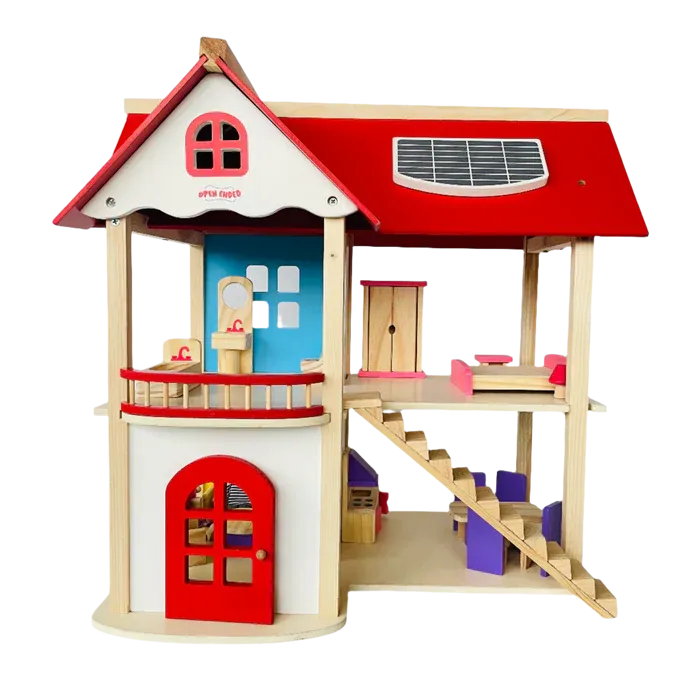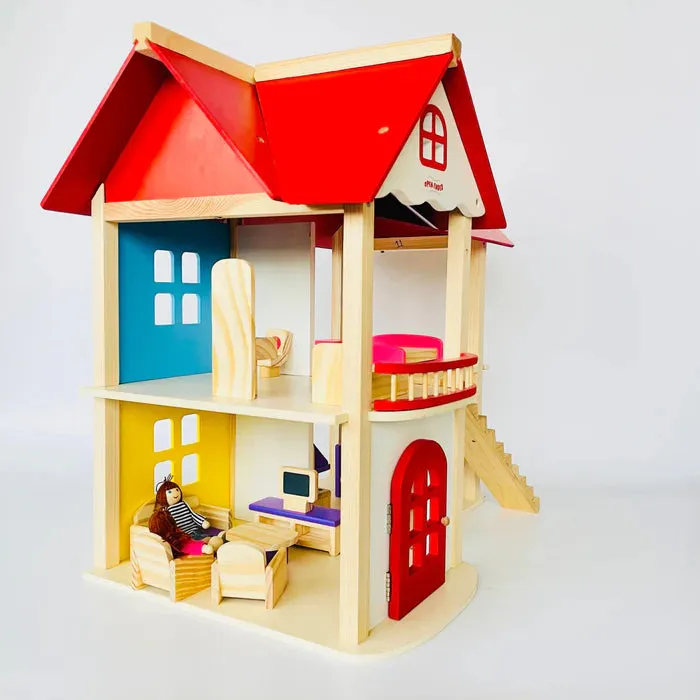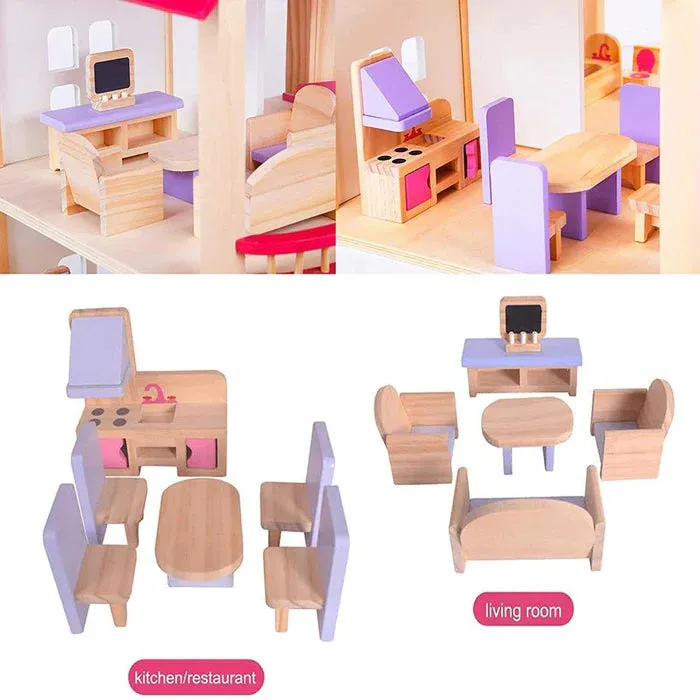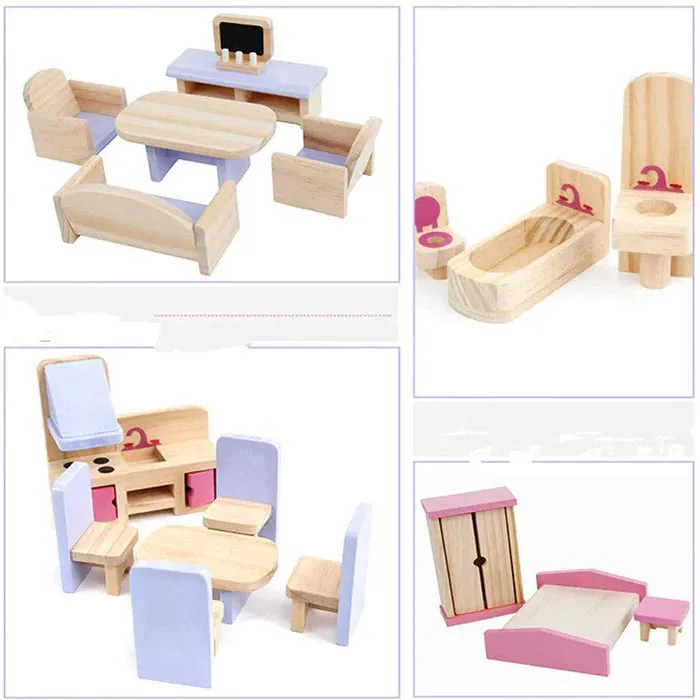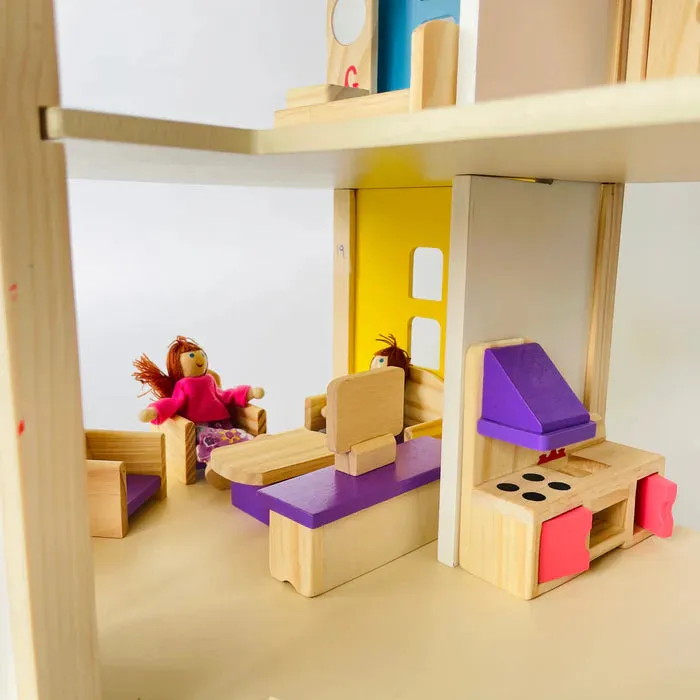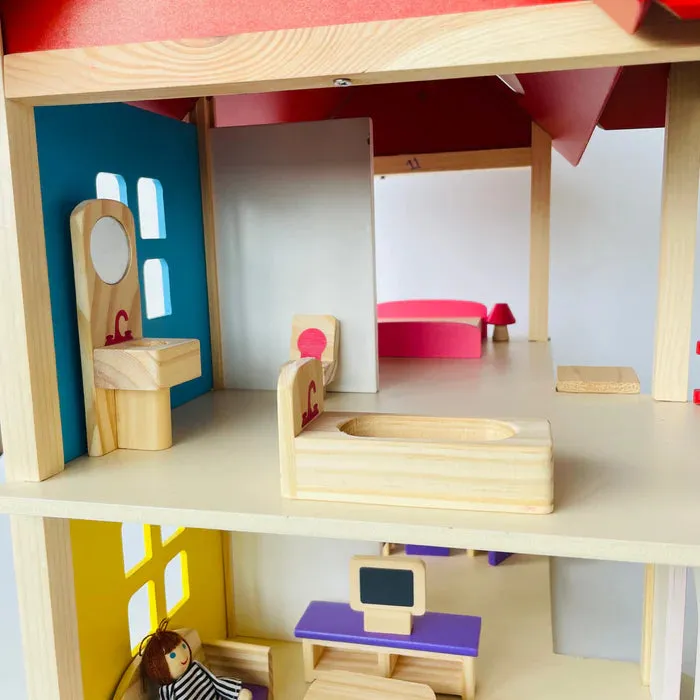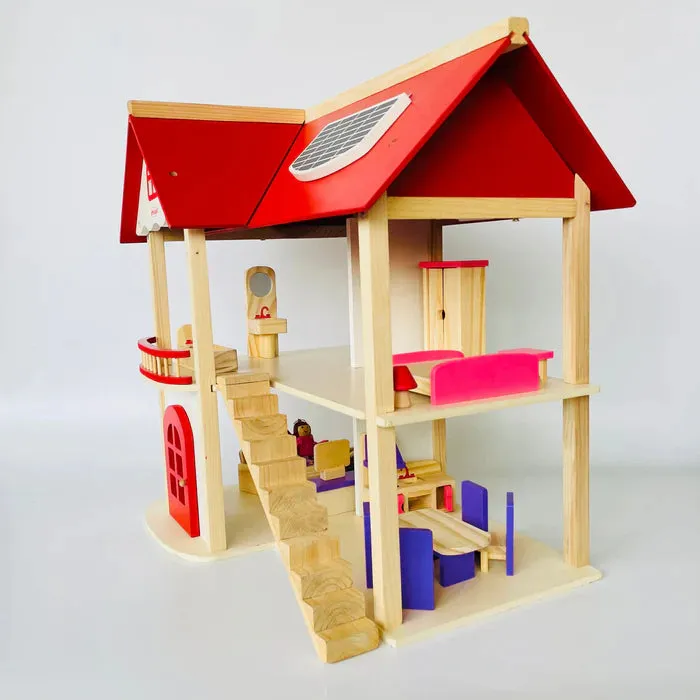A wooden dollhouse offers endless possibilities for imaginative play, creativity, and skill development for children. Here are some tips on how children can play with a dollhouse to maximize fun and learning:
1.Storytelling and Imaginative Play
- Create Scenarios:Encourage children to create stories involving the dollhouse inhabitants. They can pretend going on adventures, having family dinners, or hosting parties.
- Daily Routines:Children can mimic real-life routines such as waking up, brushing teeth, going to school, and bedtime. This helps them understand daily schedules and responsibilities.
2.Language and Communication Skills
- Role-Playing Dialogues:Children can practice conversations between the dolls, improving their language skills and social interactions.
- Narration:Ask the child to narrate what the dolls are doing. This helps with vocabulary building and sentence structuring.
3.Fine Motor Skills and Coordination
- Manipulating Small Objects:Moving dolls and arranging furniture helps develop fine motor skills and hand-eye coordination.
- Decorating:Allow children to decorate the dollhouse, changing the layout of rooms and furniture. This can include placing tiny accessories, which enhances dexterity.
4.Creativity and Artistic Skills
- DIY Projects:Children can create their own furniture and decorations using craft materials. This can include painting, gluing, and assembling pieces.
- Themed Play:Change themes periodically, such as decorating the dollhouse for holidays, seasons, or special occasions.
5.Social Skills and Cooperation
- Group Play:Encourage children to play with siblings or friends. They can take turns being different characters, learning to share and cooperate.
- Role Assignment:Assign different roles to each child (e.g., mother, father, baby) to help them understand various family roles and dynamics.
6.Problem-Solving and Critical Thinking
- Scenario Challenges:Present challenges for the dolls to overcome, like a doll being lost or a furniture piece breaking. Children can brainstorm solutions, fostering problem-solving skills.
- Design Challenges:Ask children to rearrange the dollhouse to fit certain themes or accommodate all dolls in one room, promoting spatial awareness and critical thinking.
7.Emotional Development
- Expressing Emotions:Use the dolls to express and discuss various emotions. Children can act out scenarios that involve happiness, sadness, anger, and other feelings, helping them understand and manage their own emotions.
- Empathy:Role-playing different perspectives within the dollhouse helps children develop empathy and understanding towards others.
8.Mathematical Skills
- Counting and Sorting:Use the furniture and dolls for counting exercises. Sort items by size, color, or function.
- Spatial Awareness:Encourage children to think about spatial relationships as they place furniture and dolls within the house, which can enhance their understanding of geometry and spatial concepts.
9.Science and Nature Awareness
- Weather Play:Incorporate weather changes into the play. Dolls can experience sunny days, rainy days, and snowy days, teaching children about different weather conditions.
- Nature Elements:Introduce small plants or natural elements into the dollhouse environment, discussing how these elements fit into a home.Accessories List : 19 pcs furniture 2 doll figuresDimension - 55 X 36 X 53 cm ( L X W X H)
Age : 3 Years




